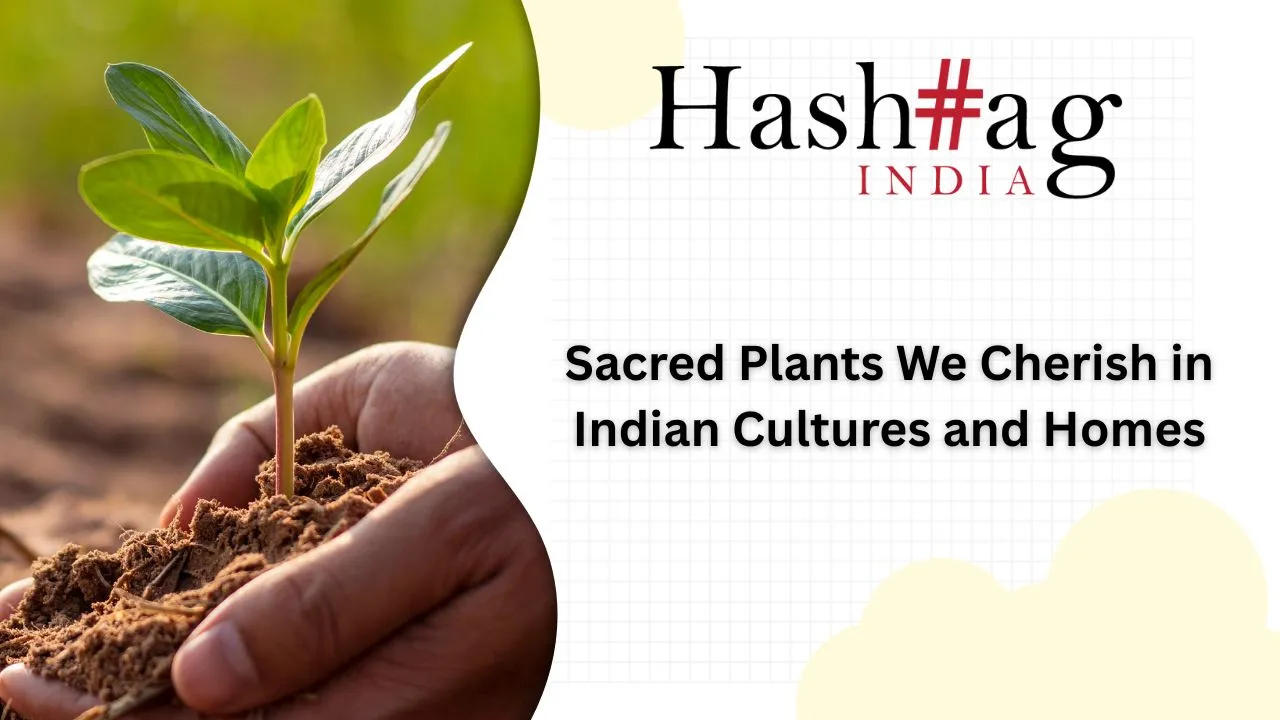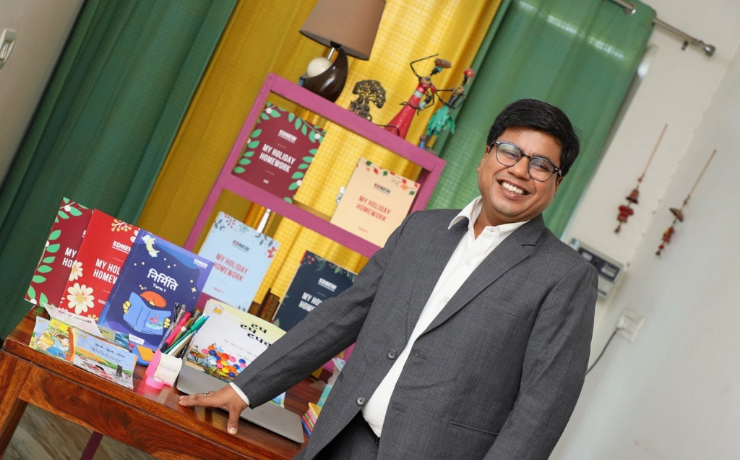Team MOWO ensures women take the world by storm with every turn of their bike wheels, Surela Mukherjee gives us a lowdown…
Women are not “allowed” to ride bikes, as it is considered “Not safe for women”. The stigma attached with women driving bikes is a huge deterrent too. Most are restricted to the lightweight scooters and this is what avid motorcyclist Jai Bharathi wanted to change. She wanted to see more women on streets riding bikes. With this dream to see women become financially independent and empowered enough to take their own decisions, she created MOWO (or ‘Moving Women in their thoughts’).
Jai Bharathi being an avid motorcyclist herself led one of a kind first cross-country women expedition comprising a group of four women. They covered 17000 km in 56 days and journeyed from India through five South-east Asian countries- Myanmar, Thailand, Laos, Vietnam and Cambodia. This is where the idea of starting MOWO was born.
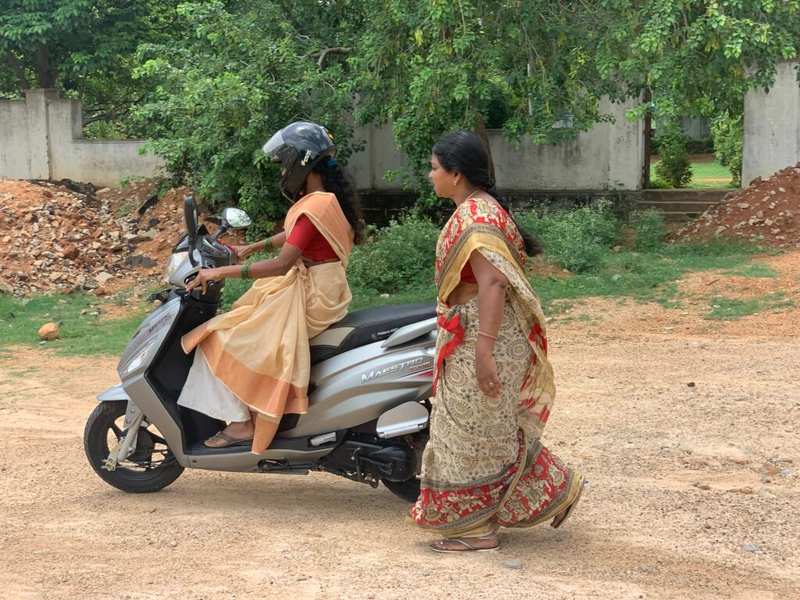
Jai Bharathi reminiscences that it after six long hours of paper work at the Myanmar border they entered Thailand. Here they stopped to taste some street food and that is when she saw a group of women in their mid-40s standing at a junction with their scooters. They were bike taxi operators. She went ahead and interacted with them and clicked pictures. For her that was the most powerful takeaway from the expedition.
It inspired Jai Bharathi to start something similar back home in Hyderabad. She passionately expresses, “Their presence gave me immense clarity and grounded my vision further. I knew this was my purpose.” In fact, she shaped MOWO’s vision based on this unforgettable experience- “Improve mobility for women by providing a safe and reliable commute option ‘for and by women’ thereby empowering them to be self-reliant and confident.”
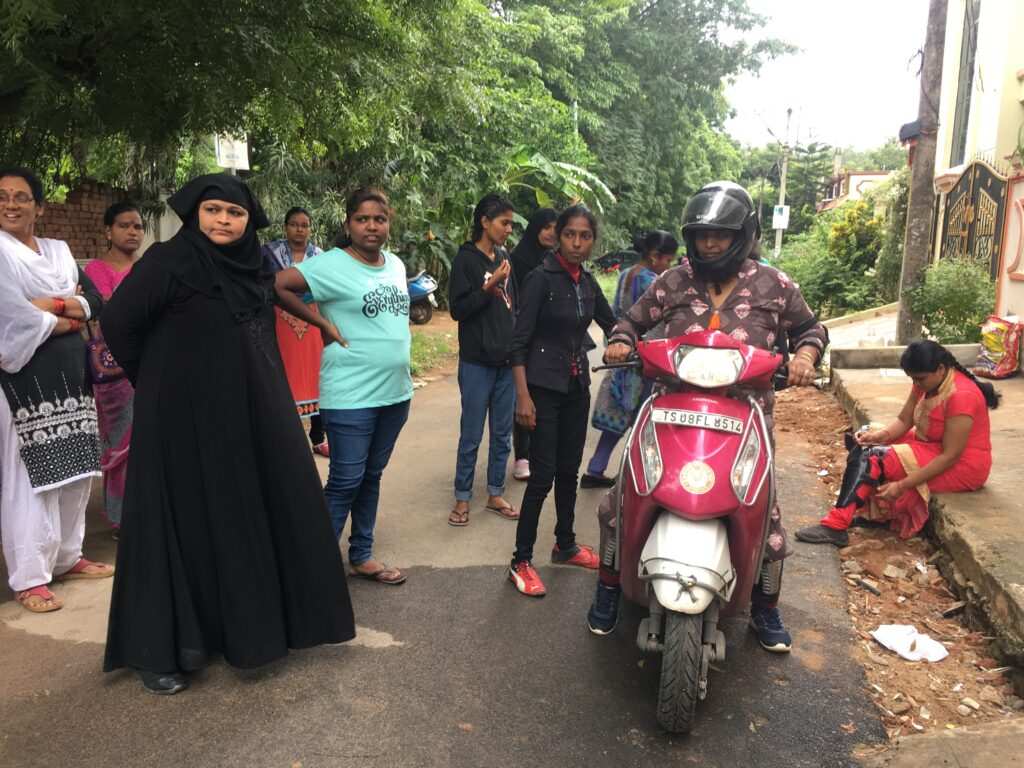
Speaking about founding MOWO Jai Bharathi says, “If you ask me, there are so many women who can ride much better than me, but I could recognize the opportunity to put in my efforts and reach wherever I am today. It is not just to accomplish something but an opportunity of living your life. This turned out to be women empowerment at a larger scale. If every woman at their individual level can decide for herself that is the biggest change, we can achieve.”
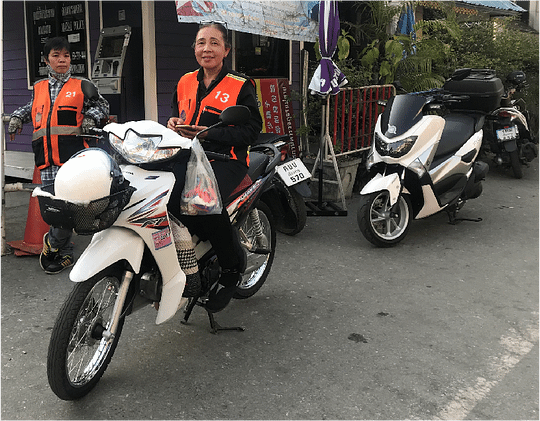
The gender ratio in the sector of mobility was not at par in Hyderabad. Compared to other metro cities like Delhi and Mumbai, Hyderabad was far behind when it came to number of women riding two wheelers. However, there has been some progress in mobility for women it is still at a nascent stage. Jai Bharathi and her team is not only making those dreams come true, but breaking the glass ceiling to ensure the skewed gender ratio on the road is duly addressed. She bridges the gap by not only teaching women to ride two wheelers and get their license but find a job with leading logistics companies so that they can be truly mobile both physically and also in their thoughts. That is why the name ‘Moving Women’.
It does not come as a surprise that MOWO has reached out to 10000 girls/women both in urban & rural areas, out of which about 1500 have been successfully trained in riding two-wheelers with licenses and few amongst them were placed in delivery jobs with logistic companies. (others are in process)
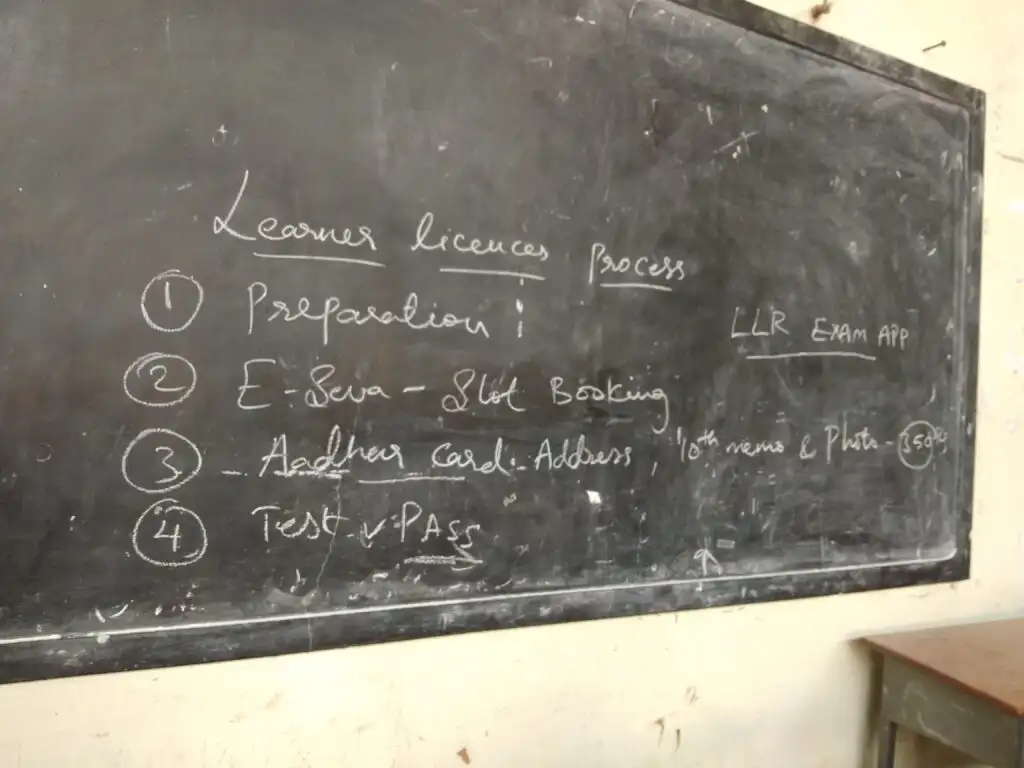
Jai Bharathi leads the Hyderabad chapter of The Bikerni, an association of female motorcyclists of India started in Pune since its inception in 2013. Jai Bharathi has been teaching women how to ride two-wheelers informally since her college days. She conceptualised weekend two-wheeler training programs for women and along with other with other Bikerni members and volunteers taught a batch of women how to ride two-wheelers, basic self-defense moves and provided motivation. At that point, they did not have enough resources to talk about it. Being a small group where volunteers often could not turn up that is when she realized that lessons had to be given in an organized way to maintain consistency and comfort level. Bharathi informs, “We thought we will be teaching just 200 people but 265 signed up and 300 were in waiting.”
Meanwhile ‘Road to Mekong’ expedition happened and it was a roaring success. The Hon’ble Prime Minister Narendra Modi at the capital appreciated Bharathi and her women crew after returning. She wanted to do much more than riding motorcyclist and achieving milestones. Through the immense credibility and trust earned through travel and motorcycle expeditions over the years, she gave shape to MOWO. She had a bigger dream in mind to extend that opportunity to as many women she could.
Thus, MOWO became a registered Section 8 not for profit organisation in February 2019 and they tied up with government degree colleges for girls and self-help groups to ensure a steady number of participants. Even many bike companies gave them a free hand to use their vehicles and premises to conduct lessons. Royal Enfield team conducted a train the trainer’s program at MOWO training campuses. Thus, existing infrastructure was used to impart two-wheeler lessons.
Apart from teaching how to drive, team MOWO tied up with logistic chains like UberEats, to encourage more women in their delivery workforce. With flexible working hours and being able to work within their neighborhood women feel encouraged to work with the delivery partners. MOWO uses two-wheelers to empower women to make them truly self-sufficient. This fulfills the primary motto of MOWO to ‘convert roads into equal spaces’ which is a revolutionary step.
However, to make sure women can actually commute on their two or three wheelers their safety had to be ensured. At MOWO the trainings are stringent so that women are comfortable driving, know the traffic rules by heart and have valid license. The sheer number of women on road creates that safety net for other women. Watching these women on two-wheelers will inspire other women to follow their footstep. MOWO succeeded in making many women ride bike taxis in Hyderabad a reality.
When team MOWO had just started out, Jai Bharathi was advised by GHMC west zone commissioner Harichandana Dasari, IAS to speak with women attending self-help groups during one of their monthly meeting. All of them were eager to learn. They instructed the ladies to choose a leader among themselves to create a batch of twenty women and find a place in their area to learn. Within three days the woman leaders were ready with a group of eager learners and had made the necessary arrangements. They encourage women learners to make their own decisions while choosing their vehicle. Women are trained to procure their learner’s license without the aid of any agents. This is what Bharathi meant by moving women in their thoughts!
Here she shares an interesting anecdote- “The day at the RTO was a memorable one. Suddenly there was this huge line of women applying for learner’s license. Usually, it is 90% men who stand in the line and 10% women but that day the sex ratio tilted in favour of women. There were two lines instead of one line mostly for men like on a regular day. That was a game-changing scenario with men and women equally applying for their learner’s license.”
Once they earn their learner’s license, team MOWO handholds them to get their final license after 30 days. The learners are made to attend rigorous mock tests on laptops and mobile phones to make traffic rules their second nature. For all these training, MOWO just charges a nominal fee so that people take lessons seriously. Those women who can’t pay immediately can reimburse the amount once they start earning through MOWO. With the funds raised, the training is given free of cost to college students and women from lower income groups. Even after the women get jobs, they still get support from Bharathi and her team.
In 2019, Jai Bharathi embarked on a 10800 miles motorcycle expedition across The United States in 35 days to raise funds for MOWO and also emphasize on the need for more women in mobility. Bharathi emphasizes, “Learning two-wheelers is not rocket science!”
In 2019 Jai Bharathi received ‘Vishishta Mahila Puraskaram’ by Govt of Telangana under adventure category. This is the first time in the state of Telangana, woman in motorcycling was considered under adventure category. Being felicitated boosted her morale to keep inspiring women and give back to the society.
In 2020, MOWO made it to the top 60 finalists from over 10,000+ applicants globally for the UNWTO SDG Global Startup competition. MOWO also received a grant from Visa’s I Fund Women program to support women led start-ups. In the second year, MOWO started training programs in rural areas in the district of Narayanpet with the support of District Collectorate. 300+ women have been trained so far in the newest district of Telangana to ride two wheelers.
Jai Bharathi is looking to create a facility of their own and proper infrastructure where ladies can easily learn and practice. MOWO is where women meet, learn and create long lasting relationships.
One can sign up to become an instructor, ambassador and volunteer for MOWO. Contributing through donating funds and vehicle are also welcome. Visit https://mowo.in/ and their social media pages to learn more about this unique NGO.
“MOVO bridges the gap by not only teaching women to ride two wheelers and get their license but find a job with leading logistics companies so that they can be truly mobile both physically and also in their thoughts.” MOWO is where women meet, learn and create long lasting relationships.
















